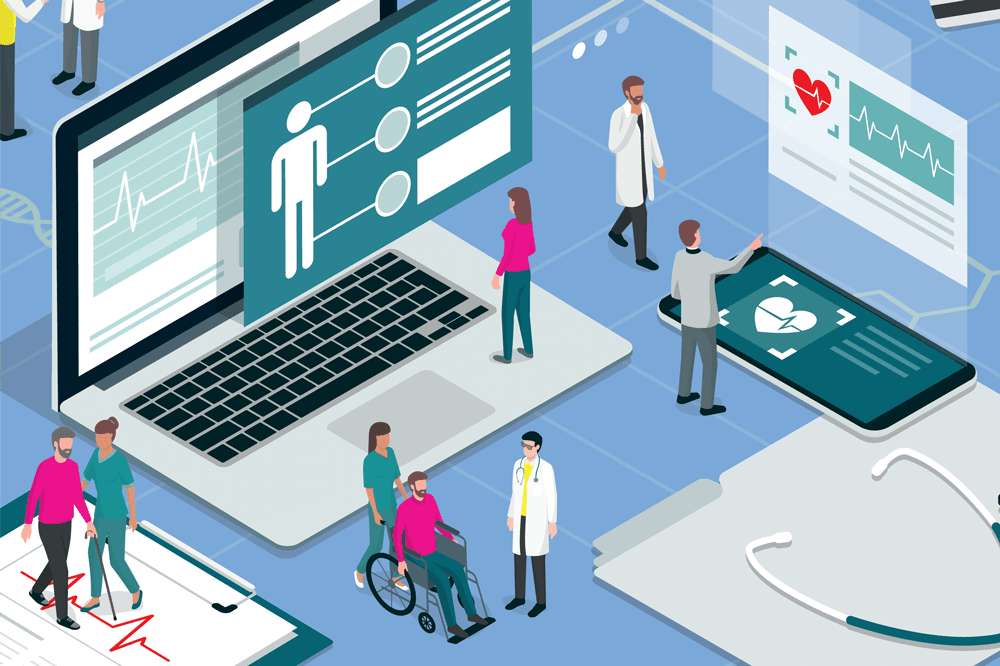Traditional cancer research cannot move fast enough to keep up with the evolution and prevalence of the disease. The answers we need live inside each of us at a molecular level and we are now beginning to explore this new dimension of information. But humans cannot always process biological data as quickly or efficiently as deep learning machines and algorithms. The vast knowledge base stored within the human body cannot be seen through a microscope; it requires deep exploration into the 0s and 1s of biological data. In short, if we want to make urgently needed progress in cancer care, we need to embrace emerging technologies and data-driven approaches.
Despite noble goals, researchers undoubtedly face challenges in breaking free of a siloed approach through the adoption of cloud-based technologies. Certainly, one major barrier to the widespread application of data analytics in healthcare is that, unlike many other industries, healthcare decisions deal with highly sensitive information, require timely data and action, and may have life-or-death consequences. As a result, research labs often do their own data analysis and keep the data in-house.

Through cloud computing and insight-sharing initiatives, an individual’s anonymized health data can be analyzed and compared in the context of a much larger, more complete health data network. Traditionally, though a provider may be able to compare a single patient’s current health status with their past medical records or clinical industry guidelines, they do not always have access to active data or “living” examples of effective treatments or strategies that evolve in real time. The COVID-19 pandemic was an extremely apparent example of how much collaborative global medical strategies are lacking and where regional hospital networks can benefit from sharing emerging trends and effective therapies worldwide via a single portal.
We must all engage in clinical collaboration on a global scale – we cannot stay working in individual siloes. Here, technology – namely, cloud-based platforms – can allow significant clinical insights to be instantly shared among researchers so that individual clinicians are no longer alone in their fight to improve cancer care.
As we gather increasingly large amounts of data, bioinformaticians can be extremely helpful to medical professionals. They can optimize technologies, such as machine learning, to find relevant (and previously undiscoverable) data to supporCloudt new findings. For example, a single variant discovered among the data may indicate a possible treatment option, but another biomarker may contradict its usefulness as a viable therapy. By offering a macroscopic view of the data, healthcare professionals can better classify and interpret biomarkers – allowing better decision-making for their patients.
Cancer care is continually evolving, thanks to technology platforms that record and combine longitudinal data with treatment information and outcomes. The next step – or leap – is to use artificial intelligence and machine learning to extract new insights from the data, improve disease prevention, and bring faster, more effective drugs to market. There are already two biomolecular approaches being implemented in the field that show great promise in supporting research for new therapies: the detection of homologous recombination deficiency and RNA fusions (RNA targeting). Clinical studies are starting to reveal how effective these biomarkers can be at not only identifying cancers, but also tracking the effectiveness of treatment for malignancies associated with these molecular abnormalities.
To improve cancer care, we must fine-tune the complicated research process behind clinical discoveries – something I believe we can accomplish with a data-driven medicine approach and advanced analytical tools. At the same time, we must provide oncologists with better insights into patients’ reactions to different treatments, as well as the outcomes achieved, to support more informed decisions. In my view, we can only achieve these two goals when health data are not siloed. Access to better data through the cloud enables broader perspectives and makes us smarter as a community.




